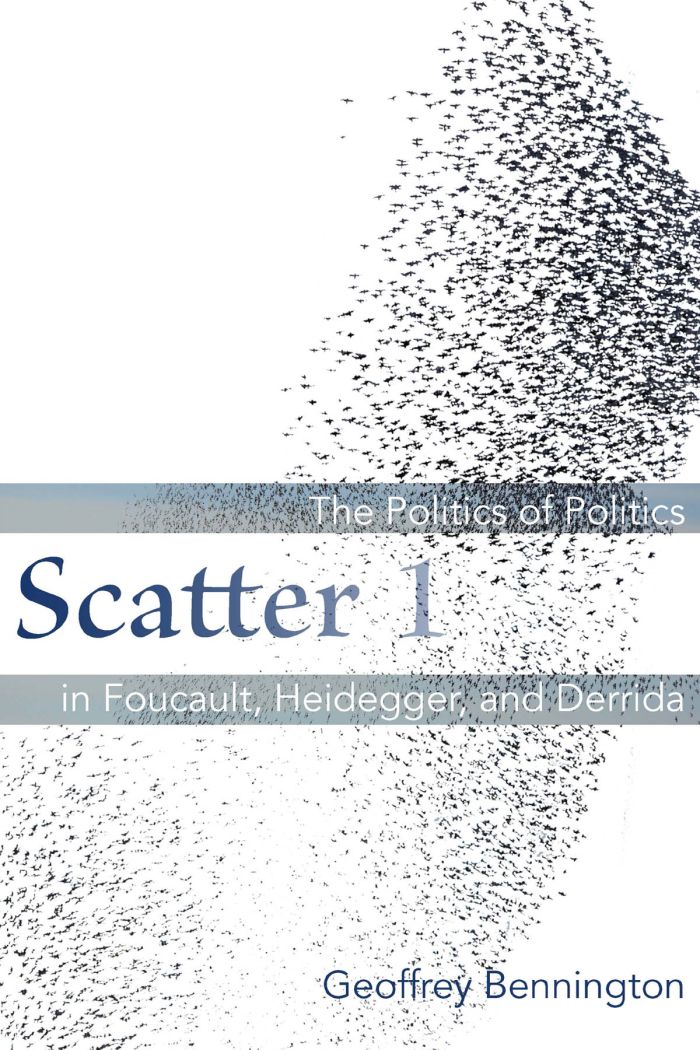Scatter 1
The Politics of Politics in Foucault, Heidegger, and Derrida

This book can be opened with

Frontier: the border between two countries; the limits of civilization; the bounds of established knowledge; a new field of activity.
At a time when all frontiers (borders, boundaries, margins, limits) are being—often violently—challenged, crossed, erased or on the contrary reinforced, fenced and walled, perhaps it is urgent to rethink the very concept of frontier itself. But is there even such a concept to be found or constructed? Through an original and imaginative reading of Kant, Geoffrey Bennington casts doubt upon the conceptual coherence of frontiers of all sorts.
The frontier turns out to be both the very element of Kant’s thought and the permanent frustration of his conceptuality. Following what Kant himself would call this “guiding thread” first in the political writings and then in the still little-read “Critique of teleological judgment,” Bennington brings out a complex, abyssal, fractal structure. This structure leaves a residue of nature—violence—in every frontier (including conceptual frontiers), and complicates Kant’s most explicit, most rational arguments in the direction of cosmopolitanism and perpetual peace by adding to them an element of reticence or interruption.
If, as Kant suspects a little in spite of himself, there can be perpetual peace only in death, we must interrupt the teleological movement that might take us there. We must maintain frontiers (and therefore a certain violence) in the very place where everything led us to believe we should hope for their peaceful disappearance, in the perspective of the Idea of Reason.
Neither a critique of Kant nor a return to Kant, this book also proposes a new reflection on philosophical reading, for which thinking the frontier is both an essential resource and a recurrent, fruitful, interruption.
“Bennington’s Scatter 1 is a sophisticated, detailed, and strikingly original demonstration of the political efficacy of deconstruction. As always with Bennington to read him is to undergo an education in reading.”

